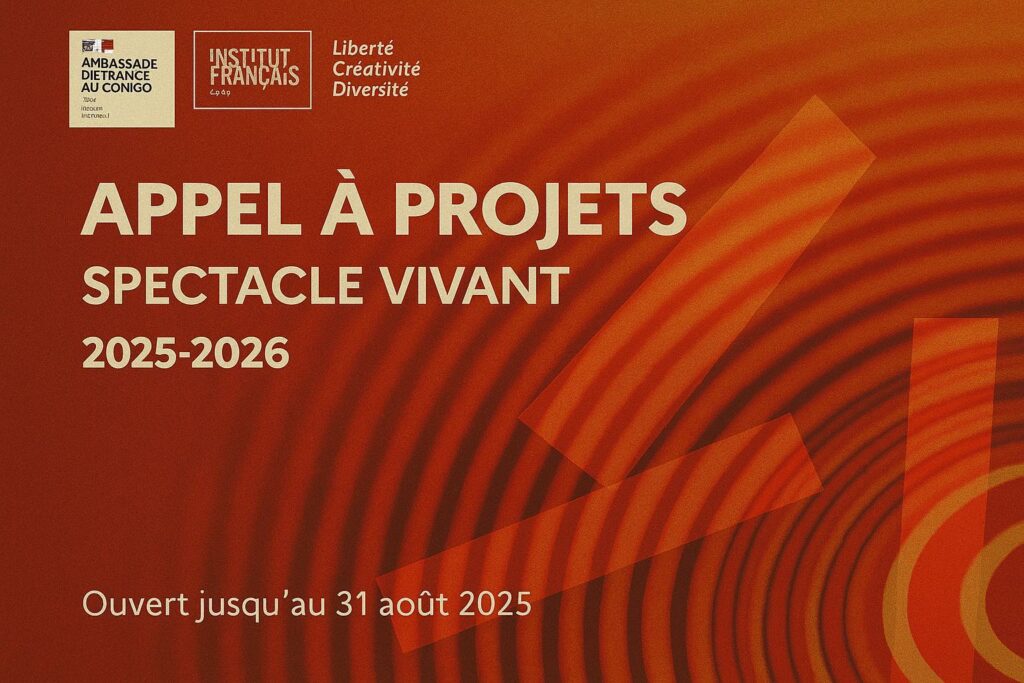Cultural diplomacy meets creative ambition in Pointe-Noire
When the French Institute of Congo (IFC) unveiled its latest call for projects aimed at the performing and digital arts, seasoned observers of Central African cultural diplomacy took note. The initiative targets professional companies and collectives capable of proposing original productions where choreography, dramaturgy or performance art converse with coding, projection mapping or immersive sound design. In an official communique, IFC underlined its intention “to help bring forth a new generation of hybrid, socially engaged works,” a pledge that resonates with Brazzaville’s strategic goal of elevating the nation’s soft-power profile while supporting its burgeoning creative economy.
Why the digital pivot matters for Congo’s stage industry
The Congolese performing-arts sector already commands regional attention for its linguistic versatility and its embrace of pan-African themes, yet access to digital tools has remained uneven. UNESCO’s 2022 Creative Economy Report identified a growing appetite for immersive technologies across francophone Africa, but it also highlighted funding gaps that stifle experimentation. By expressly rewarding proposals embedding virtual reality, motion capture or interactive scenography, the IFC call aligns local practice with global production standards, offering a laboratory where Congolese artists can refine cross-disciplinary skill sets without leaving home.
Mechanics of the call: eligibility, timelines and expectations
Eligible applicants must submit a comprehensive PDF dossier by 31 August, detailing the artistic rationale, the projected digital components, a target audience analysis and a balanced budget. Administrative transparency is paramount: National Identification Numbers and bank statements wp-signup.phped in the group’s name are compulsory. While the maximum envelope per project is not public, past editions of IFC support schemes suggest allocations calibrated to cover rehearsal spaces, equipment rentals and modest artist stipends. Selected works will premiere during Novembre Numérique, the institute’s annual festival dedicated to new-media expression, before benefiting from a regional touring circuit brokered by the French cultural network.
Local voices welcome an ecosystem approach
Pointe-Noire-based choreographer Clarisse Makosso, whose 2023 piece merged contemporary dance with real-time data visualisation, regards the announcement as a “timely accelerator” for practitioners who have long improvised with limited resources. “Access to even a single motion-capture suit or high-luminosity projector can drastically alter narrative possibilities,” she remarks. For theatre director Romain Ngoma, the emphasis on collaboration might be the call’s most significant facet. “Funding is vital, but structured mentorship in dramaturgy and digital dramaturgy is priceless,” he argues, pointing to IFC’s plan to pair winners with French and Congolese technical advisers.
Strategic alignment with national and multilateral agendas
The Congolese Ministry of Culture has repeatedly framed the arts as a vector of economic diversification, a stance echoed in its 2025 Cultural Industries Roadmap. By reinforcing a platform that funnels international expertise and fiscal support toward local talent, the IFC call dovetails with that roadmap while preserving the sovereignty of Congolese artistic narratives. Diplomatic analysts view the initiative as a textbook example of reciprocal cultural diplomacy: France activates its global cultural infrastructure, and Congo gains visibility for its creative capital without compromising policy autonomy. Similar programmes in Abidjan and Dakar have yielded touring partnerships and co-production agreements, outcomes Pointe-Noire stakeholders hope to replicate.
Prospects for a sustainable creative corridor
Should the selected projects secure critical or commercial traction, they could catalyse a self-reinforcing ecosystem in which local start-ups specialising in animation, coding or lighting design collaborate routinely with stage producers. A discreet consortium of Pointe-Noire entrepreneurs is already exploring seed funding for a rehearsal complex equipped with green-screen studios, according to industry insiders. In this scenario, the IFC call is less an isolated grant than the ignition of a broader value chain extending from arts education to exportable cultural products, consistent with African Union ambitions to raise the continent’s share of the global creative-goods market.
For now, the countdown to 31 August has begun. Artists fine-tune synopses, programmers scrutinise budgets, and a coastal city better known for its oil terminal momentarily rebrands itself as a crucible of algorithmic theatre. While the curtain has yet to rise, Pointe-Noire’s latest wager on choreography and code is already rewriting expectations about what a twenty-first-century Congolese stage might look like.

